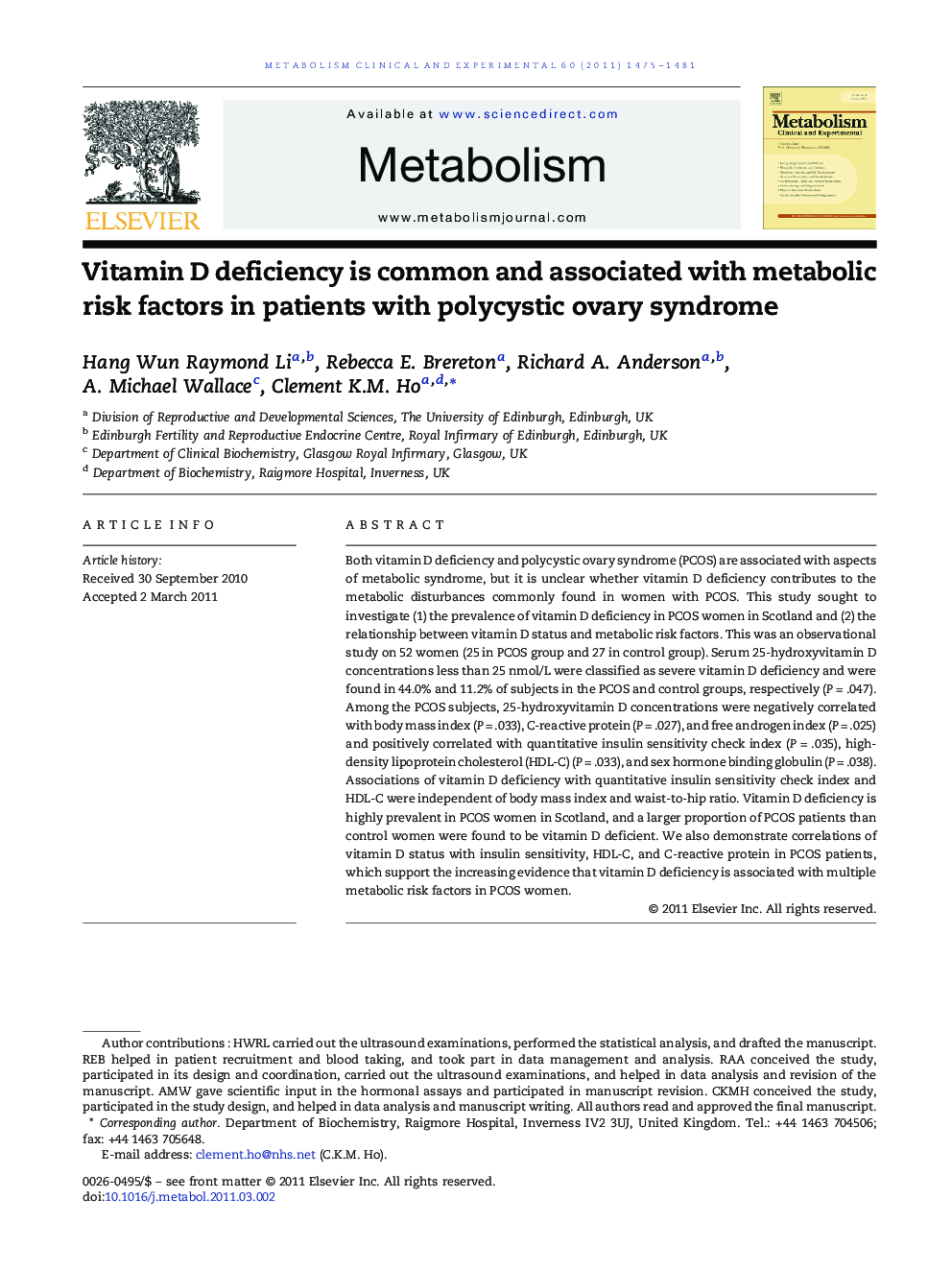| Article ID | Journal | Published Year | Pages | File Type |
|---|---|---|---|---|
| 5903464 | Metabolism | 2011 | 7 Pages |
Abstract
Both vitamin D deficiency and polycystic ovary syndrome (PCOS) are associated with aspects of metabolic syndrome, but it is unclear whether vitamin D deficiency contributes to the metabolic disturbances commonly found in women with PCOS. This study sought to investigate (1) the prevalence of vitamin D deficiency in PCOS women in Scotland and (2) the relationship between vitamin D status and metabolic risk factors. This was an observational study on 52 women (25 in PCOS group and 27 in control group). Serum 25-hydroxyvitamin D concentrations less than 25 nmol/L were classified as severe vitamin D deficiency and were found in 44.0% and 11.2% of subjects in the PCOS and control groups, respectively (P = .047). Among the PCOS subjects, 25-hydroxyvitamin D concentrations were negatively correlated with body mass index (P = .033), C-reactive protein (P = .027), and free androgen index (P = .025) and positively correlated with quantitative insulin sensitivity check index (P = .035), high-density lipoprotein cholesterol (HDL-C) (P = .033), and sex hormone binding globulin (P = .038). Associations of vitamin D deficiency with quantitative insulin sensitivity check index and HDL-C were independent of body mass index and waist-to-hip ratio. Vitamin D deficiency is highly prevalent in PCOS women in Scotland, and a larger proportion of PCOS patients than control women were found to be vitamin D deficient. We also demonstrate correlations of vitamin D status with insulin sensitivity, HDL-C, and C-reactive protein in PCOS patients, which support the increasing evidence that vitamin D deficiency is associated with multiple metabolic risk factors in PCOS women.
Related Topics
Life Sciences
Biochemistry, Genetics and Molecular Biology
Endocrinology
Authors
Hang Wun Raymond Li, Rebecca E. Brereton, Richard A. Anderson, A. Michael Wallace, Clement K.M. Ho,
